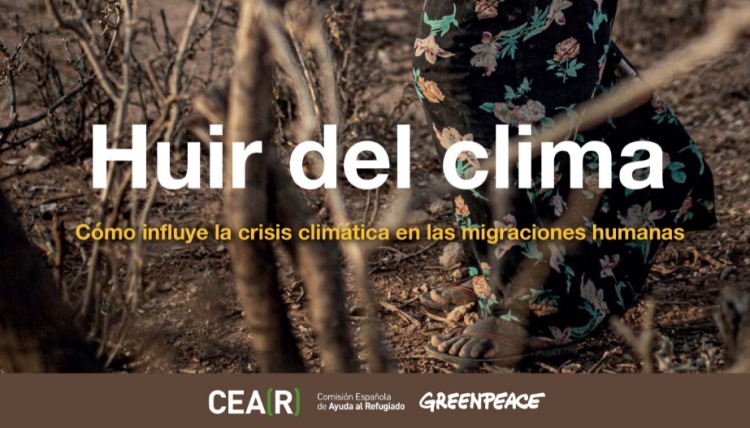The Diplomat
The Spanish Commission for Refugee Aid (CEAR) and Greenpeace have warned that climate crises generate millions of displaced people around the world and have called on the Spanish government and the EU for greater ambition in reducing emissions, establishing legal and safe migratory pathways and granting refugee status to people who migrate for these reasons.
The two organizations launched last week the report Fleeing the Climate. How the climate crisis influences human migration, in which they analyze “a phenomenon that every year forces more people to leave their homes to flee the impacts caused by the climate crisis”.
According to estimates by international organizations, around 30.7 million displacements linked to weather and climate phenomena were recorded in 2020. Examples of this, cited in the report, are the caravans of Central American migrants to the United States, caused by drought, poverty or violence, or the situation of the fishing populations of Senegal, Gambia or Mauritania, which are pushed by the activities of large European, Russian and Chinese ships to embark on dangerous migratory routes, “with the already known deadly consequences”.
The document highlights the lack of protection faced by people who are forced to migrate mainly for climatic reasons “due to the lack of rules that protect and recognize them”, and warns that, “although there has been progress, there is still no international regulation that provides guarantees to migrants to have the right to apply for residence in third parties for climatic reasons”.
“The EU and the Government of Spain are late in implementing measures to address climate migration,” said Estrella Galán, CEAR’s director general. “It is urgent and necessary to establish legal and safe pathways in cases of forced human mobility, addressing with concrete measures the cases related to climate migrations, whose affected people should be granted an authorization to stay for humanitarian reasons and recognize their refugee status in our country,” she added.
“The climate crisis is having an increasing impact on human displacement and migration,” said Eva Saldaña, director of Greenpeace. “Rising sea levels, devastating cyclones or prolonged droughts affect more habitually and with greater severity the most disadvantaged populations, who are precisely those who have contributed the least to generate the problem,” added Saldaña, who asked the Spanish government for greater ambition in the plans to reduce emissions and a firm commitment to cooperate with the countries and regions most affected by the impacts of climate change.





